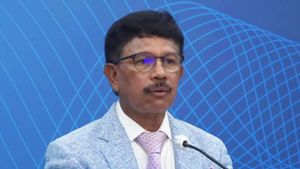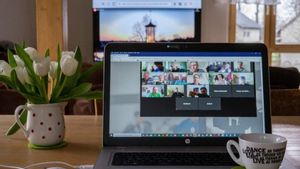JAKARTA – Critics of Facebook on Wednesday, January 19 asked the world's largest social network to release an assessment of the human rights impact assigned to them in 2020. This is to examine the presence of hate speech on its platform in India.
The social media company, now called Meta Platform Inc, is facing increased scrutiny over its handling of breaches on its services, especially after whistleblower Frances Haugen leaked internal documents showing her struggles to monitor problematic content in countries where it is most likely to occur and cause harm.
In a letter sent to the company this month and published last Wednesday, human rights groups, including Amnesty International, Human Rights Watch and India Civil Watch International, urged Facebook to release the report.
Gare Smith, partner and global human rights and business practice partner at US law firm Foley Hoag, who Facebook commissioned to do the assessment. "Such projects are complex, especially in a country as diverse and large as India," said Smith
Meanwhile, Meta's Director of Human Rights Policy, Miranda Sissons, promised to report on their findings.
"Given the complexity of this work, we wanted this assessment to be thorough. We will report annually on how we are addressing human rights impacts, in line with our Human Rights Policy," Sissons said.
In November, rights groups told the Wall Street Journal that social media companies had been narrowing the scope of the draft report and delaying the process.
A Meta spokesperson did not answer Reuters' questions about these allegations or a review timeline. Smith of Foley Hoag said the company had "taken many steps to ensure the assessment was completed fairly and independently."
SEE ALSO:
Human rights groups have warned for years about online hate speech and misinformation fueling tensions in India, Facebook's biggest market by user count.
“As a result of the consistent and persistent barrage of hate on social media, particularly on Facebook, Indian Muslims are practically inhumane and have become powerless and voiceless,” said Dr. Zafarul-Islam Khan, former Chairman of the Delhi Minority Commission, spoke at a press conference organized by a group of Facebook critics known as the Real Facebook Supervisory Board.
Previous Reuters reports on Myanmar and other countries have also investigated how Facebook has struggled to monitor content around the world in multiple languages.
Facebook last week said it would "assess eligibility" to commission an independent human rights assessment into its work in Ethiopia after its supervisory board recommended a review of how its platform is being used to spread content that increases the risk of violence there.
The English, Chinese, Japanese, Arabic, and French versions are automatically generated by the AI. So there may still be inaccuracies in translating, please always see Indonesian as our main language. (system supported by DigitalSiber.id)














